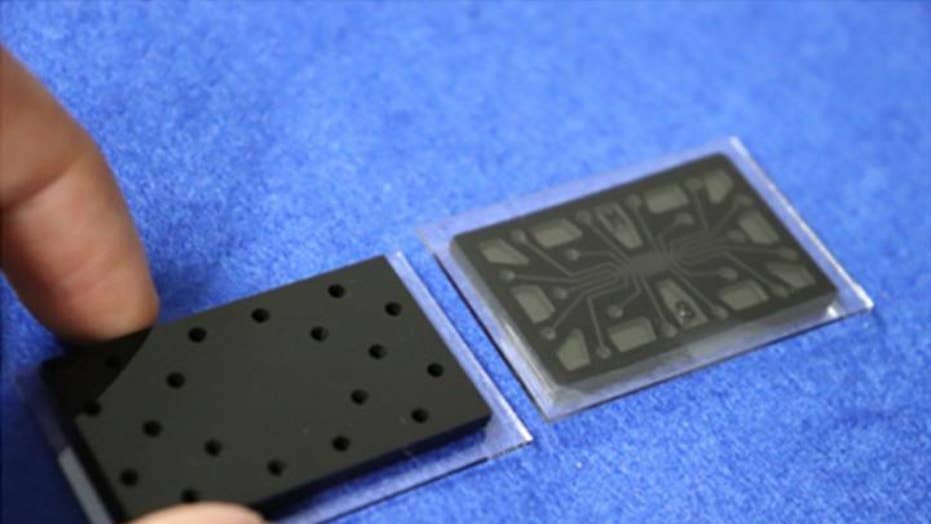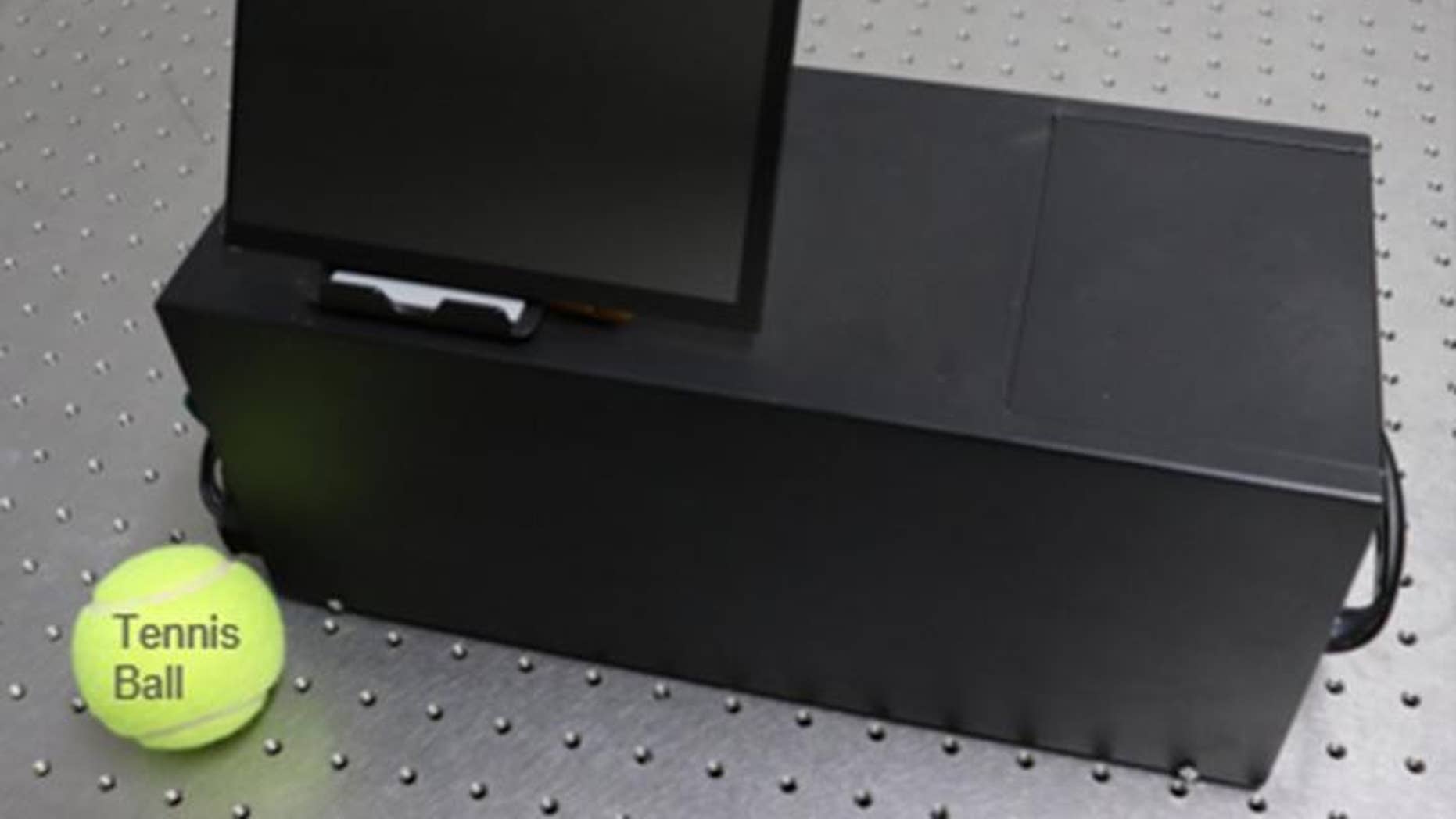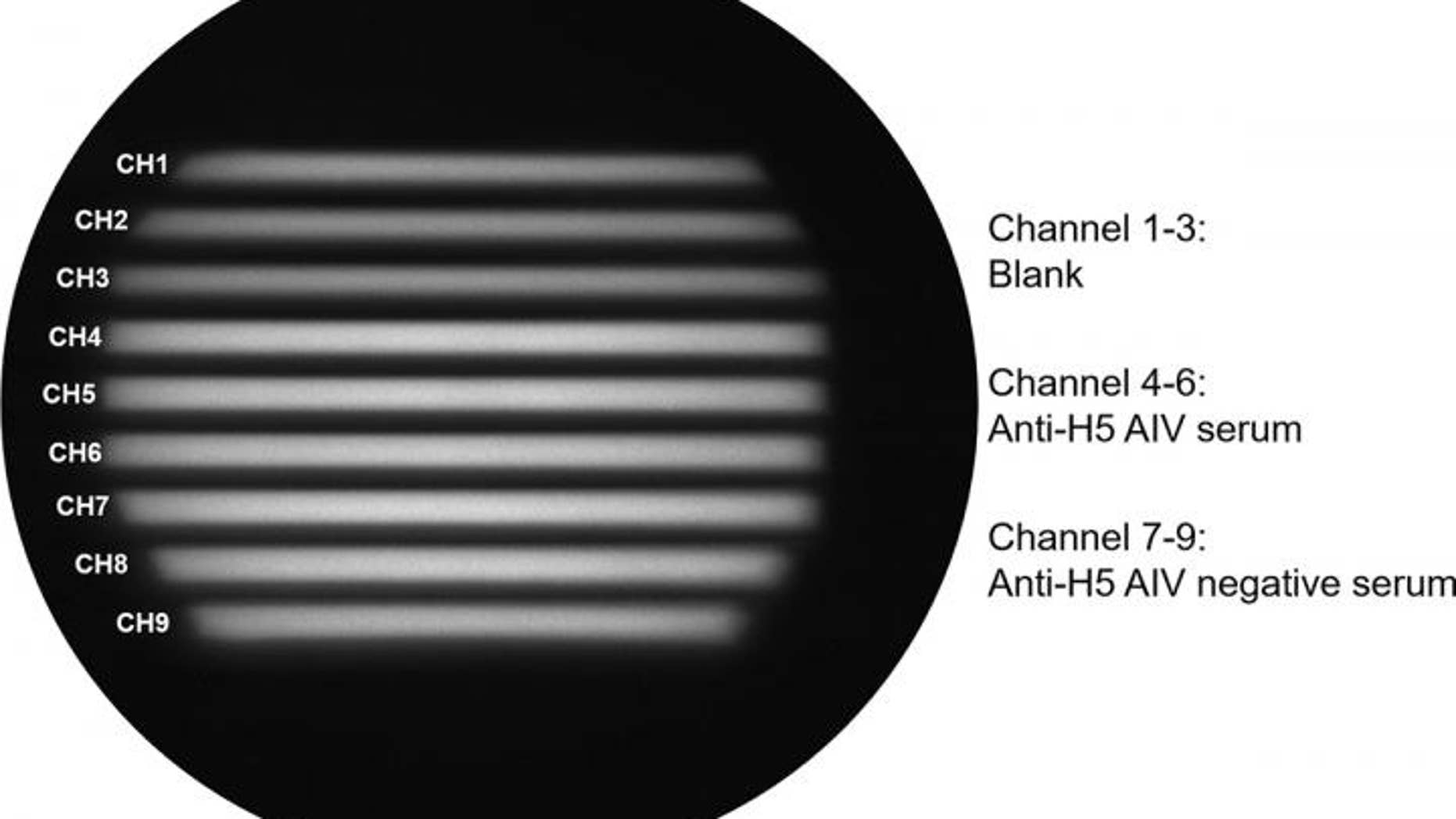
The WHO cautions those who have recovered from coronavirus should still be socially distancing; Jonathan Serrie reports from outside CDC headquarters in Atlanta.
New portable technology can detect anti-virus antibody in 20 minutes, researchers say
by James RogersGet all the latest news on coronavirus and more delivered daily to your inbox. Sign up here.
New technology can detect an anti-virus antibody in just 20 minutes, according to researchers in Japan.
If a suitable reagent is developed, they say that the tech could be used to detect antibodies against SARS-CoV-2, the virus that causes COVID-19.
A reagent is a substance used to detect or measure other substances.
The portable analyzer, which works with a small microfluidic device, has detected an anti-avian influenza virus antibody in blood serum, according to a statement released by Hokkaido University.
CHILLING VIDEO SHOWS HOW CORONAVIRUS SPREADS AT RESTAURANT BUFFET
"Our analyzer could be used to conduct other bio tests if suitable reagents are developed," said professor Manabu Tokeshi of Hokkaido University’s Faculty of Engineering in the statement. "By reproducing fragments of spike proteins expressed in the novel coronavirus, and using them as the reagent, the analyzer should be able to detect anti-coronavirus antibodies."

A paper on the research has been published in the journal “Sensors and Actuators B: Chemical.”
As of Wednesday morning, 16,623 coronavirus cases have been diagnosed in Japan, accounting for 846 deaths, according to data from Johns Hopkins University.
The Hokkaido University researchers note that, generally, a polymerase chain reaction (PCR) method is used to detect the viral genome. However, this is a complicated procedure that requires a considerable amount of time, they say. The new method uses a conventional fluorescence polarization immunoassay (FPIA), a technique that harnesses fluorescent dye and light to detect antibodies.
However, the researchers say that they are using a different measurement mechanism to make the analyzer device small and portable, as it weighs just over 12 pounds.

“The combined use of liquid crystal molecules, an image sensor and the microfluidic device makes it possible to simultaneously examine multiple samples and reduces the volume of each sample required,” they said in the statement. “Liquid crystal molecules are capable of controlling the polarization direction of fluorescent light, while the microfluidic device has a number of microchannels as a measurement vessel.”
The scientists also developed a reagent to detect anti-H5 avian influenza virus antibody. Serum collected from birds was mixed with the reagent and left for 15 minutes, they explained in the statement. The mixture was then injected into the microfluidic device they had developed and measured with the portable fluorescence polarization analyzer.
“Molecular movements of the reagent bound with the antibody will be smaller in the liquid, producing a different degree of polarization from the reagent not bound with the antibody,” they said.
CLICK HERE FOR COMPLETE CORONAVIRUS COVERAGE

As of Wednesday morning, over 5.61 million coronavirus cases have been diagnosed worldwide, with at least 1.68 million of them in the U.S., according to data from Johns Hopkins University. The disease has accounted for over 350,000 deaths around the world, including at least 98,929 in the U.S.
Follow James Rogers on Twitter @jamesjrogers